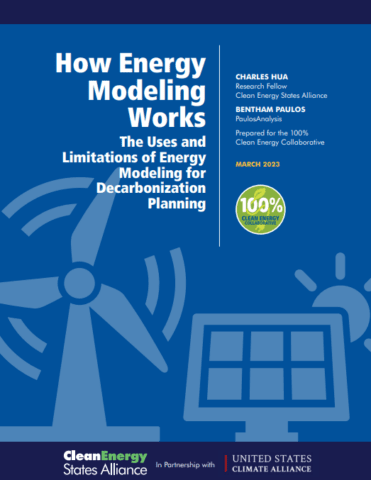How Energy Modeling Works: The Uses and Limitations of Energy Modeling for Decarbonization Planning
Charles Hua and Bentham Paulos | Clean Energy States Alliance
Energy modeling—using computer software and mathematical equations to simulate the operation and growth of energy systems—can be a powerful tool for state decarbonization planning. With many states interested in identifying the best strategies for transitioning the energy sector to clean energy, there is demand and need for robust energy modeling to support policy development. But because modeling can be costly and the results can be prone to misinterpretation, models need to be used carefully.
This short introductory report is written for a broad range of stakeholders who are not themselves modelers but who need to either make decisions about modeling projects or interpret and act upon modeling results. It describes what energy models do and do not do, and explains their tradeoffs, strengths, and weaknesses. It provides readers with guidance for interpreting and communicating the outcomes from energy models. This high-level analysis is especially timely, because states currently have an opportunity to embark on climate action planning activities with significant funding from the US Environmental Protection Agency.
Report co-author Bentham Paulos, a CESA Senior Research Associate, notes that, “Each state is eligible to receive a $3 million planning grant through the EPA Climate Pollution Reduction Program. Careful consideration before embarking on energy modeling can help ensure that the resulting state climate action plans will provide sound guidance for many years.”
Report co-author Charles Hua, a CESA Research Fellow, cautions: “The costs of bad modeling can be significant, locking in long-term investments in undesirable strategies while overlooking opportunities to pursue desirable ones. We have aimed to provide clear advice for avoiding those pitfalls.”
Associated Project(s):
Resource Details:
Date: March 30, 2023
Type: Report
Topic(s): 100% Clean Energy

